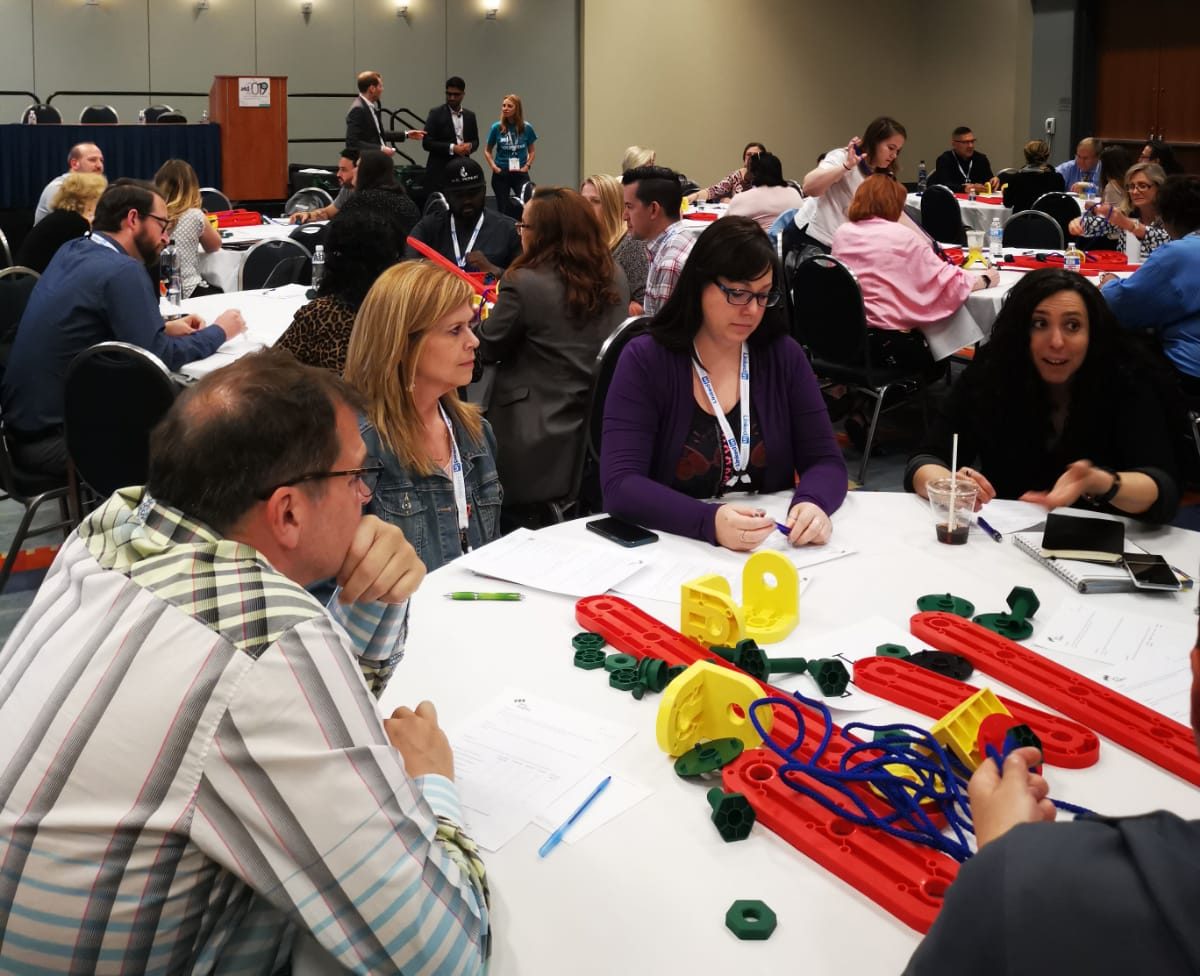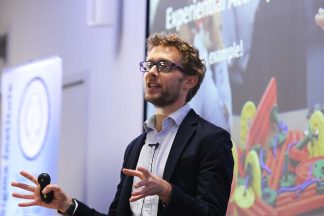The Learning has Landed, Lessons from MTa’s Session at ATD ICE 2019
MTa went to ATD, now Alex Greenwood shares his view of the conference and wisdom behind his session.
MTa has been going to ATD for 30 years now, what makes the event so special?
From my perspective I really enjoy the energy of the conference. For us it’s a place to meet up with existing clients from across the globe and have engaging conversations with new people. ATD also keeps the topics fresh and has a fantastic line up of speakers, so for us we gain a new perspective on industry challenges.
What were the key learnings from your session?
From a top level those who came to the session learnt:
- About how to effectively implement experiential learning into their training from Qatar Airways experience.
- Learning about activity structure and how this is used to engage a deeper level of thinking with participants. Plus how this structure makes learning stickier.
- The mindset required in organisations to enable experiential learning to be effective i.e. giving freedom to learners to define their own learning journeys etc.
- How quickly results can be achieved by taking participants through the learning arena. This is a process of; activity, review, discuss and test.
- There were also unique personal learnings in there for all attendees as they took part in two activities.
Added to that I also sought to debunk the myth that activities need to be briefed with clarity. Instead showing that the ambiguity better reflects working life.
You spoke alongside Mujeeb from Qatar Airways, what insights did he share?
Mujeeb shared how he put the activities we did in our session into practice.
He spoke about how he used the Taller Stack activity, to help employees at Qatar airways work effectively through a huge change in the business.
Implementing experiential learning with the MTa approach was not without its challenges though. There was initial scepticism within his own team which needed to be overcome as the methodology was so different to anything they’d done before.
Mujeeb ran several activities with his facilitators to demonstrate the value of the approach and to allow his facilitators to feel first hand the power of experiential learning. With their mindset shifted they were able to successfully engage the rest of the company in experiential learning with their enthusiasm spreading across the business.
The result of using the MTa approach was clear with phenomenal feedback from the participants. They scored these experiential sessions 4 on a 4 point scale for ‘transferability of learning’ and ‘business relevance’ parameters. As a result, the project delivered a high ROI and ROE (return on engagement).
In the session you mentioned golden rules of experiential learning activities, could you expand on those?
Sure, the golden rules are:
- Ensure that all participants in the activity have opportunity to get involved. If there isn’t anything for them to do then no workplace learning can be developed
- Have an effective balance between the activity and the reflection, the reflection is where all the learning happens!
- Keep group sizes low, the optimum group sizes are 4-8 for experiential activities
- Allow individuals to process their experience before a broader facilitated discussion. An effective way to do this is with the review sheets provided within MTa facilitator guides.
In the session we broke almost all of the above, but it severed to give people a flavour of experiential learning and the MTa approach.
The rules all come from a combination of both published academic research on experiential learning and our 30+ years of practical experience working around the world.

Is there anything you would have liked to add to the session if you had more time?
The sessions I enjoy the most are the ones where real learning takes place. So, I would have liked to have had more time in the reflection phase to tease that learning out. I only had 75 mins with 250 people, normally I’d have a couple of days with 10 so it was a very different scenario.
As a result of being limited by time, we skimmed the surface on a wide range of different skills and behaviours and never really got to dig deeper into them. More time would have given those in the session a fuller experience and allowed deeper learning to take place.
Aside from that it would have been nice to showcase some of the other MTa Insights activities or even other kits such as the MTa Team Kit. The session served as a great introduction to MTa materials but it didn’t show the level of sophistication of many of the other activities. It is those activities with a deeper level of learning which really sets up apart from the competition. Unfortunately, it was impractical to take everything across the pond!
With a packed room there was standing room only for the session, why do you think that was?
Attendees at conferences are there to learn, offering the ability for them to take control of their own learning in a fun and engaging way is very appealing. I guarantee you that each person had a unique takeaway which they decided on. Due to them deciding on the action that learning will be stickier, and more contextualised, than key takeaways on a slide.
Lastly, were you nervous?
Of course I was, presenting is a very different challenge to facilitating. Although I can’t complain as I was also asking participants to step outside their comfort zone. That being said, having an engaged audience, a supportive team and sharing the stage with Mujeeb certainly made things easier.
The slides from Alex and Mujeeb’s session can be found here and if you want to stay up to date with the latest MTa news and blogs please subscribe here.

